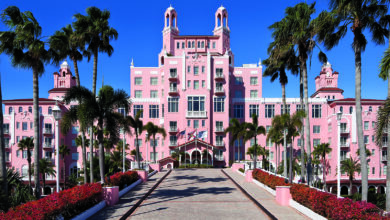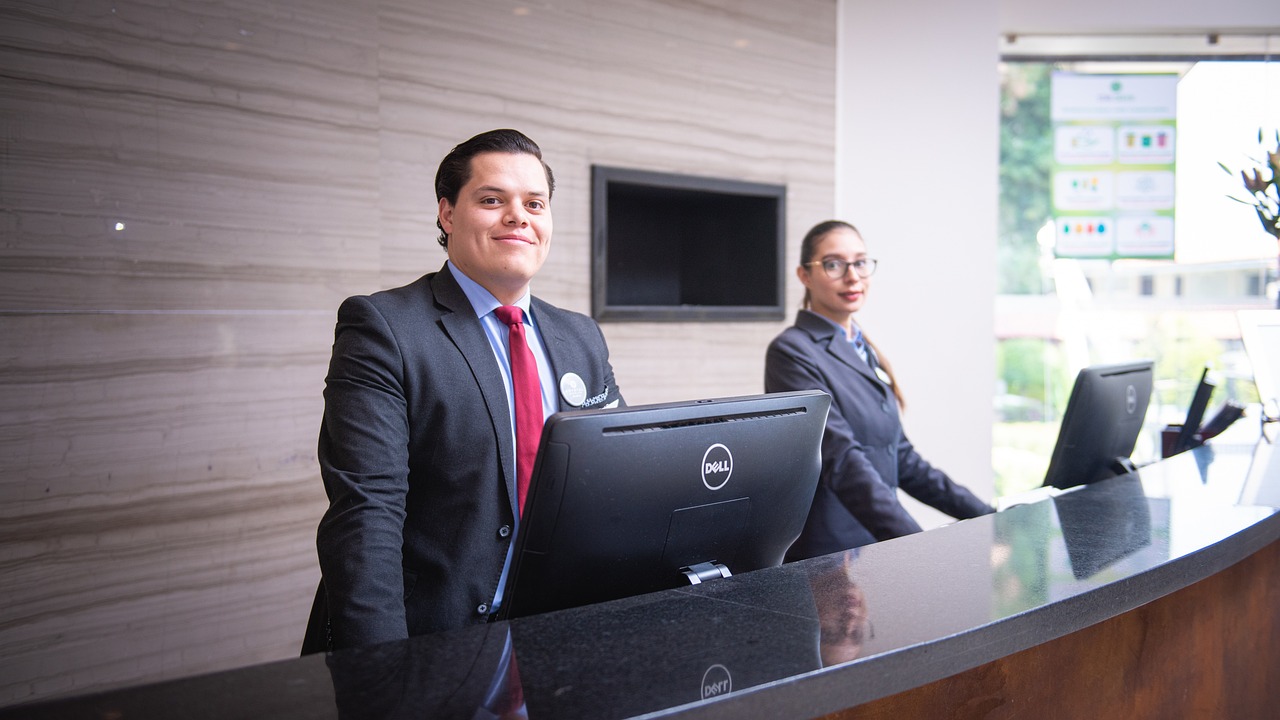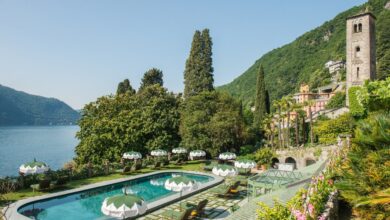
Engaging with Executives: CoralTree’s Tom Luersen
By David Berman | August 1, 2023
Our Engaging with Executives series consists of one-on-one Q&As with executives around the hospitality industry, breaking down recent trends and news in their companies and the industry as a whole.
Today’s interview is with Tom Luersen, President of CoralTree Hospitality. Founded in 2018, CoralTree is a hospitality management firm and wholly-owned subsidiary of private real estate company Lowe. Luersen grew up around hospitality, as his father was a hotelier. He has worked for the Lowe family for over 20 years in various roles at Destination Hotels and Resorts and Two Roads Hospitality before helping start CoralTree.
In this Q&A, Luersen discusses the state of the labor market, recent technology trends and tracking CoralTree’s progress in its fifth year.
Hotel Interactive: What are some recent trends in the industry that you’re seeing that you feel are going to be major factors in the next few years; things that are really going to impact the state of the industry?
Tom Luersen: Obviously, we got through COVID, and COVID was the first time in my hospitality career where there was only one segment in the industry and that was the leisure segment. Group and corporate travel and all those micro niches of segmentations went away. So, we converted all of our energies, our human resources on properties, our amenities, to competing for the only market that was available and that was the leisure market. That was very successful. Probably had the most successful resort businesses in history in 2020, 2021, even going into ’22. But then of course, that’s begun to shift. Leisure demand has softened. Group has returned, and (it’s) returning in a robust way going into the future. So we had to be adaptive. We had to change the cultures, amenities, the offerings, think about a restaurant that’s catering to group business that now is catering to the leisure segment, completely different menu engineering, same thing with spas and golf courses.
So just really change management from 2019 when we start hearing about the cycle coming and then COVID came. We closed hotels, we converted to completely leisure segment hotels, now we start coming back but it’s not not all back and in the middle of that was our worst labor shortage in the hospitality industry in my career. So we have tried to figure out how to retain people, the best people, how do we develop future leaders. (They’re) things that we’re focused on now that we always have been focused on, but it comes with a more acute understanding of that because of the last three years.
So it’s again a people business where we’re focused on the retention of the best and brightest and also those that are really passionate about our business. A lot of people left the hospitality industry during the last few years. The entry level folks that said, “I don’t want to work the weekends and those late shifts and I don’t have to because I can stay at home and not have to go to work.” So a lot of that weeded out the people that were passively coming through our industry. So now we’re working on the future.
And then technology has to be the second bullet point, is what are we doing with technology to talk to our guests more often, to target market them. This is everything from CRM platforms to CRS platforms. The use of AI technology today and how that’s creating the creatures of comfort in our facilities. We’ve got a great hotel in Lake Nona, the Wave Hotel, and the building’s equipped with what’s called a view glass, which is the exterior skin of the building is glass … with individual smart panels that manage the ultraviolet rays that come in and out of the building. That expensive building creates great comfort for the guest using technology. We also have Rosie the robot that is in our lobby at the Wave who can take your cocktail order or can take away dishes in the lobby. It becomes a part of that future into what technology looks like.
So those are the consumer facing, but also data management, the science of data, how we’re using that to target market to our customers and talk to you knowing what your interests are. So a lot of things that just sharpen the skills that we’ve always had and just provide us another layer of resources to do it as good as we can do. So that’s where we’re heading. I think the business hasn’t changed. We’re here to take care of people when they travel, give them a great night’s sleep and great experience whether it’s vacation or it’s leisure or it’s corporate or it’s group, we cater to that experience and all these tools just allow us to do it better than we’ve ever done it before.
HI: You grew up in hospitality, as your father was a hotelier. I’d love to just hear your perspective on that lifetime in hospitality. What lessons that you’ve learned throughout your life that you keep with you and still guide you to this day?
TL: That’s a loaded question, my friend. (laughs) Get comfortable, I guess. I did grow up in it, and candidly, I have three beautiful children who are adults now and are also in the hospitality business. My son is a general manager for one of our hotels, Chris runs Hotel Eddy. My two daughters have been in the business as well. So what I learned there is it’s, one, a people-oriented business. It’s an ever-changing business. I’m a person who likes constant change, likes the diversity of things that you do in a day to day world. And here we are, we manage these small little things we call hotels and resorts, but in a crazy way, it’s a small little city, right? We’ve got a marketing company, right, we’ve got a revenue company, we have a housekeeping, a laundry, a golf, multiple restaurants, a spa, pools; each one of those components are a business within a business.
That kind of takes me back to my sports days. I thought I loved sports, but what I found out is I really liked being on a team and contributing and seeing all the pieces working together and the sum of the parts really was something special. That’s what we’re doing in our business here where I watched my dad build a small local company in Louisville, Kentucky, where he was best in class in what he was doing in the space he was in. He used to hear people talk about the building and he’d always stop them and say that’s not who takes care of you. We build the building. It’s the people inside the building that create the experience that brings it to life. That was a long time ago when my father was saying those things and here I am now 40 years later, and I still say the same thing. We can build anything. Technology, architecture is great, talent can build things, but what brings it to life is the people and that’s what I love.
I think that’s what my children like. We’re innkeepers at heart. We just have an innkeeper’s strategy which says come to my home. My home here metaphorically is the hotel or resort. Come have a great experience, tell us what you need, and let me see if I can make it special for you. If I do, I get the benefit of seeing your smile, seeing your reaction; immediate gratification. Not too many industries allow you to do that.
The other thing is, you can start in our business. My dad started as a bellman and my first job was cutting grass. Here I am now something 45 years later and have the great fortune to work in the business that I’m in and leading a company of our magnitude. So it’s a rare industry where you can start at the ground up and continue to learn and take that learning and apply it for greater growth. So for all those reasons, and lastly is travel, who doesn’t like to travel? My family and I, my father and my mom. They use travel as a way to see the world and to let their children see the world and experience different cultures and different locations, and I see the same thing here. I get to do it myself, and I get to see people do it, which is very fulfilling too.
HI: Next I want to talk about challenges that CoralTree has faced in recent years. You’ve already mentioned a couple of them, obviously the pandemic and labor shortages that were a direct result of that. Is there anything else that comes to mind in the last year or two that the company has been facing and strategies that you’ve used to adapt to those?
TL: Yeah, I mean, it’s a positive challenge, but we’re growing. CoralTree started in 2018, and while we have the experience and continuity of the past, we also were reintroducing a new name and new platform to the country. We’re not a consumer brand. We’re a B2B brand. I always say your next door neighbor has never heard of CoralTree, but hopefully the capital markets that own hotels and resorts looking for operators do. So we started that in 2018, got off and running. Quickly, within the first year and a half, ran into the pandemic, so we had to anticipate that that was going to really slow us down.
To our surprise and delight, it did just the opposite. We grew. We grew exceptionally during that period of time because I think that capital market customer, the owner of hotels and resorts, wanted a firm that they could collaborate with and that had lived and managed through several cycles that we’ve never seen before. A firm like ours has been around for 50 years. Lowe has been in the hospitality business for 50 years. We have that experience. So while others were shrinking and selling or closing, we were growing, but yet we weren’t operating a lot of hotels. We were almost asset watching, waiting for the market to come around and to strategically time it. I would spend a lot of time planning on that. So we have been through change management. Growth has positives and negatives. We’ve been around the block a few times in our company with that challenge and we’ve overcome it, but we’re still working through it. That means size and scale, it means what was intimate when we first started, it’s still intimate, but it’s got more process to it than it did before. I’m trying to find that secret sauce between customization and scale. So that’s a challenge for us.
We already mentioned the shift in the segmentations of the customer base, right. The all-leisure back to group in the middle of a softening economy with record-high inflation for the last decade and interest rates at an all time high over the last 20 years. So we’re seeing some of those headwinds and managing through that. I see that as continuing to take our experiences from the past and continue to be learners. I think part of our philosophy as a company is to be curious and to take on a little risk. We’re taking those things on, and that’s not for everybody. Some people like routine and like doing things over and over again. Our practice is a little bit different. So hiring that right talent, finding the customer that collaborates with someone that has this to offer like CoralTree. That’s challenging for us too.
Then lastly is ownerships. The last few years, we’ve got owners that have been stressed with market conditions. That could be loan issues, lenders, CMBS loans, a variety of different issues that in particular in the urban markets, the cities that didn’t have the city wide conventions, didn’t have corporate travel, they got hurt. So trying to figure out how to collaborate with owners to operate cleanly, but to still provide a great experience for the guests and be patient. Don’t make mistakes that will be dilutive to your long term brand. There’s not a specific playbook someone can follow that says if you follow this strategy, it’ll work. You’ve got to be creative and entrepreneurial. And those are challenging moments, but I like to rise to that challenge, and that’s where we’re experienced and I think we’re doing pretty well with that right now.
HI: I feel like you’ve already covered this pretty well, but I did want to talk about labor shortages a little bit more. Basically every single hotelier I’ve talked to in the last six months has mentioned labor shortages. So I wanted to get your perspective on the state of the labor market. Is this something that’s getting better? Where do you see it going in the next few months?
TL: I’d say 24 to 30 months ago, we were at an all-time lull for all positions: management exempt and frontline, meaning non-exempt. Fast forward now to where we are in time and heading into 2024, the market has really recovered. I’ll give you a good example. 12-18 months ago at a place like Terranea Resort in Palos Verdes, one of our flagship properties, it traditionally has about 1000 employees. At the lowest period of time, that number got down to around 600 people, and we wanted it to be much greater. We just couldn’t find talent. Today, we’re fully staffed. We’ve got over 1000 employees at that property today.
Now it didn’t just happen because the market completely returned. We found new sources of interested laborers that really were passionate about the job. We used international labor for the last couple of years. J1, in particular, internationals, we have found communities of workforces that like to come together, and we’ve done things for them. Like for a property in Oregon, we have Sunriver Resort, it’s a little bit more removed from the primary market where the labor is by about 20 miles. So the management team just gave everybody gas cards each week and provided that and tried to do things that were unique. They now are still doing a Friday barbecue that’s to celebrate the week’s successes. So those little things that create culture does something that others might not dare to do. We would dare to do. We also had to change wages. We changed some of our wage structure. We’re giving signing bonuses for people that work through very challenging periods. Like if you’re coming to one of our resorts that’s busy in the summer or busy in the winter, once you’ve finished that season, we give you a retention bonus and find ways to reward those that did exceptional work.
But today, I feel pretty positive. I was a long term believer that while the market was challenging for sure when unemployment was so high, I do believe in the end, hospitality provides a great stable career for people interested in that type of business model. So I’m confident that markets returned. I think we’ve learned things; if we didn’t, someone made a mistake. We clearly have learned how important retention is, how important onboarding is. There was a period of time when people were being hired and you’d have an application and within three hours you’re on the floor doing something untrained and prepared. Those people didn’t stay. Nobody wants to be where they don’t feel like they can be effective in our job. So we’ve spent a lot of time rolling out new programs about how to onboard people so they feel good about their jobs, how to continue to develop them. That’s how you take care of people. You take care of them, they’ll take care of the guest.
HI: What are some examples of really advanced uses of technology, maybe experimental uses of technology, in your hotels? Where do you see that going in the next couple years with AI rapidly advancing and robotics advancing as well?
TL: I mean, our business is going to continue to evolve with technology as is every business, right? One, because that’s what the consumer expects. Two, it is how you become more efficient in running your business. One of the examples, which isn’t necessarily consumer facing, is in the business of running hotels and resorts and the way that we collect data. Reports, the data banks of all of our consumers, information on their preferential treatments and services that they’re looking for when they visit us. We created a proprietary system, we call it Tree, which is a bit of a play off of the word CoralTree. Our team built it. Back in the day when we were a $2 billion company, we didn’t have the same platform that we have today that was built by the engineers within our organization. It allows our properties, the leadership teams and guest facing frontline team members to communicate better.
A good example is a text, right. We know you’re going to be coming to the Woodlands Resort on Friday night. On Thursday, you get a text that says “I understand you’re coming. We’re excited to see you. We’ve got you in a beautiful king room overlooking the golf course. Can we make a dinner reservation for you?” Then when you arrive, we say “It’s so nice to see that you made it here safely. Could we do something for you tomorrow? Do you need a tee time?” We can do that all through text. These are just examples of ways that we communicate with the guest and prepare for ourselves to serve you better.
Equipment behind the scenes; things like how we’re running laundry operations, or today, we literally had a conversation about robotics and floor care, carpet care, and hardwood floors and ballrooms that are 30,000 or 40,000 square feet that takes usually three or four people hours to shampoo and to clean in between a setup. Well, if we can use robotics to do that, and clean the room when the lights are off, and no one’s there and we show up and the carpets are cared for. So we’re going to find ways that can continue to do what we’ve always done. Take care of the guests, take care of the team member, take care of the physical asset, but we’re going to use the technology that’s coming about and it’s going to continuously evolve.
Today, AI is the most commonly talked about platform. We’re using it in our call centers. You’re now talking to someone who’s trained to ask you questions and can respond in a very humanistic way, but it’s becoming more efficient, and it’s a better way to serve the guests. So you’re gonna see that evolve, and I think we’re just you know, tapping the surface of that opportunity right now.
HI: What’s next for CoralTree that you can talk about today? Where do you see the company going in the next couple of months and years to come?
TL: Thanks for the question. We’re gonna continue to have strategic growth. We’ve announced four properties just in the last 30-60 days that we are taking over management. We just took over a beautiful resort called Everline Resort up in Olympia Valley in Northern California. We love that area. We’ve got a great property down in Florida, KAYA, which has been announced on Rosemary Beach, coming up from the ground as a luxury property. So we’re gonna continue to have strategic smart growth. You’re gonna see us continue to get into unique parts of our industry. We like the resorts space. We like unique urban hotels that have a story, maybe like the Magnolia hotels that were banks years ago that have been converted into hotels, yet in our lobby here in Denver, you can see the vault. So there’s a story that comes with the guest experience.
Then you’re going to see one of the biggest travel trends is vacation residences. We started our firm in Aspen at The Gant Hotel, and that was 50 years ago. We’ve got them today at places like Sunriver Resort, and you’re going to see us continue to grow in that space too. So those are complicated, little bit non-traditional experiences, but that’s where our growth is going to be because you need someone, or some firm like us, that can really personalize the experience, really be hands-on and create great guest experiences.
This conversation has been lightly edited for length and clarity.





Get involved!
Comments